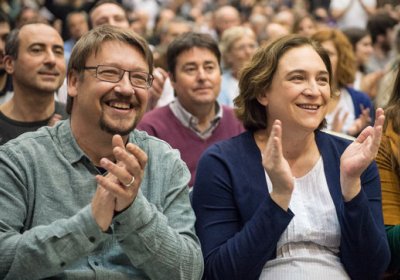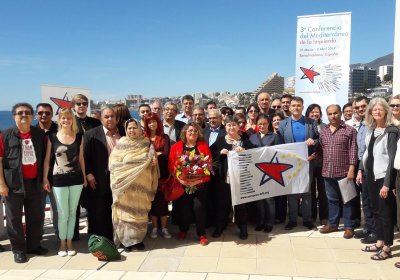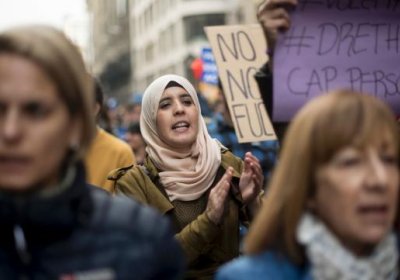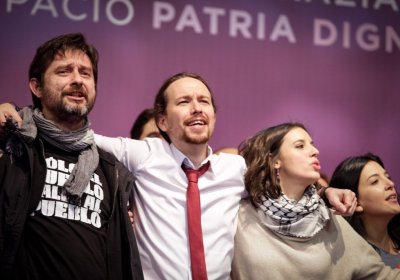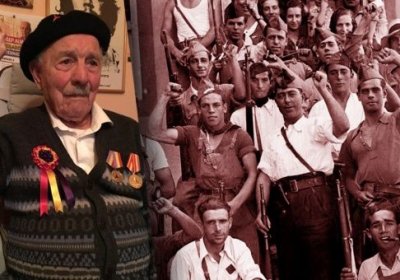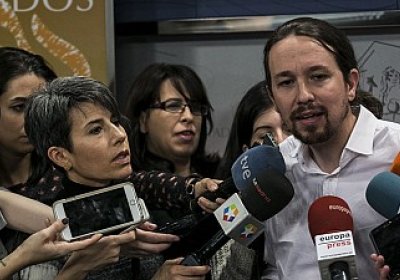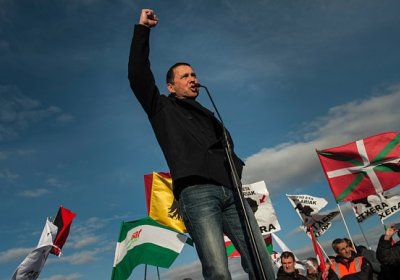As violent anti-government protests continue in Venezuela, supporters of the right-wing opposition have begun targeting Venezuelan government officials and their families in Australia. The actions are part of a string of recent attacks abroad on government representatives by Venezuelan opponents of President Nicolas Maduro.
Spain
April 26 marked the 80th anniversary of the infamous aerial bombing of Gernika by the forces of General Francisco Franco in the fascists’ war against the Spanish Republic. The war began when Franco led a military rebellion against the legitimate, elected republican government in 1936, with the fascists eventually triumphing in 1939.
The Basque Country is a historically oppressed nation divided between the Spanish and French states. It was the scene of some of the worst fascist violence.
The struggle to build a united left force with enough support to implement real social and environmental change took a crucial step forward in Barcelona on April 8.
On a bright spring day, the new Catalan “political subject” provisionally called Un Pais En Comu (“A Country Together”) held its founding congress.
The group, whose definitive name will be decided by membership referendum, is the third Catalan left unity project with “en comu” (“together”) in its title.
The Party of the European Left (PEL), which is made up of left groups across Europe, held its Third Mediterranean conference in Malaga, on the southern coast of Spain, from March 31 to April 2.
The three-day gathering brought together left-wing, socialist, anti-imperialist and anti-austerity parties from across Europe, North Africa and the Middle East.
Hundreds of thousands of people overflowed the streets of central Barcelona on February 20 in the largest ever European demonstration in support of refugee rights. The city police estimated attendance at 160,000 people; the organisers — the “Our House, Your House” campaign — put it at half a million people.
All along the vast march, its thematic sea-blue placards stood out in the light of the bright winter’s day: “Enough excuses! Let’s take them in now!"
In the end, the expected close result never happened. At the second congress (“citizens’ assembly”) of Spain’s radical anti-austerity party Podemos, the proposals and candidate list of outgoing general secretary Pablo Iglesias easily defeated those of his rival, outgoing political secretary Inigo Errejon.
In a December Podemos membership vote over the rules that were to govern the congress, Iglesias’s position had only won marginally (41.57% as against 39.12% for Errejon’s).
The slogan “We Want to Welcome Them” rang in the streets as up to half a million people demonstrated in Barcelona on February 18 to demand their government accept more refugees. It came after Spain accepted just 1000 of the 17,000 it had promised.
"It is very important that in a Europe of uncertainty where xenophobia is on the rise for Barcelona to be a capital of hope," said Barcelona's mayor Ada Colau, who took part.
February 6 marked the 80th anniversary of the start of the “Battle of Jarama” during the Spanish Civil War, as left-wing and democratic forces fought to stop the fascist forces of General Franco taking power.
Alongside the Battle of Madrid, the Battle of Jarama is commonly associated with the participation of the International Brigades — volunteers, often organised by communist parties, who travelled from around the world to Spain to join the anti-fascist fight.
The left-wing anti-austerity party Podemos is planning to hold its second country-wide citizens’ assembly (Vistalegre II) on February 11th-12th to decide the political direction, organisational structure and its electoral strategy for the next regional and general elections.
In Bilbao’s hyper-modern Euskalduna Conference Centre on January 21, the Basque left pro-independence party Sortu concluded its refoundation congress by finalising the election of its 29-strong national council.
The congress brought together Sortu members from all parts of the divided Basque Country: its four southern districts in the Spanish state, presently covered by the regional administrations of Navarra and the Basque Autonomous Community (Euskadi), and its three northern districts in the French coastal department of Pyrenees-Atlantiques.
This year will be the year of the showdown between Catalonia and the Spanish state over whether the Catalan people have a right to vote on self-determination in relation to Spain.
The year starts with the final battle lines already drawn in the contest between the right-wing Spanish-patriotic People’s Party (PP) government of Prime Minister Mariano Rajoy and the pro-independence Catalan government, headed by Carles Puigdemont.
The end of October brought an end to the deadlock within Spanish congress with the re-election of Mariano Rajoy of the Popular Party (PP) as prime minister with the support of the neoliberal Citizens and the abstention of the traditional social democratic Spanish Socialist Workers’ Party (PSOE).
But while the political and economic elites breathed a temporary sigh of relief in Madrid and Brussels, almost 100,000 opponents of the new right-wing government gathered to protest in Puerta del Sol, in the heart of the capital.
- Previous page
- Page 8
- Next page


